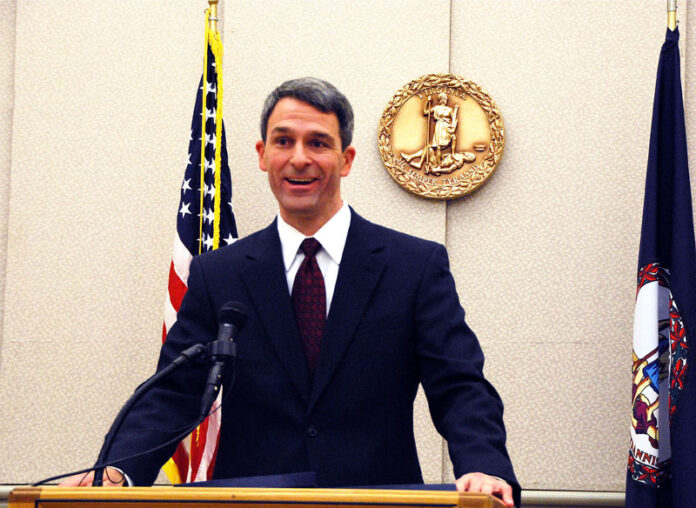
This past Monday as midday rolled around, the whole country waited to hear the ruling being made in Virginia on the constitutionality of the Patient Protection and Affordable Care Act (PPACA). At exactly high-noon, Virginia Federal District Court Judge Henry Hudson issued his ruling, and pronounced the “mandate” unconstitutional.
Attorney General Ken Cuccinelli was elated as he proclaimed the Commonwealth’s case the most significant case so far to gain national attention. The lawsuit was narrowly focused on the mandate that every person must buy government-approved health insurance.
Cuccinelli, in an “I told you so” moment pointed to media outlets and legal experts, “ who said ‘we didn’t have a chance …’ Limitations on federal power [do] mean something. ”
“This won’t be the final round, as this will ultimately be decided by the Supreme Court, but today is a critical milestone in the protection of the Constitution,” said Cuccinelli.
At his press conference following the ruling Cuccinelli stated that, “there was a need for speed.” He expects that the federal government will appeal the ruling to the Fourth Circuit Court. He estimated that skipping over the fourth circuit could shorten the process to a year. Otherwise it could take two or more years. He cited an extraordinary level of uncertainty that state governments and the private sector face while the case is being decided.
Congressman Eric Cantor has already urged the Department of Justice to agree to an expedited appeal.
In the summary judgement, the Commonwealth argued that the mandate provision compelled a person to perform an involuntary act and as a result submit to the Commerce Clause. “The insurance mandate penalizes people for not engaging in commerce. In other words, you can get fined for doing nothing,” said Cuccinelli.
The Secretary of Health and Human Services maintained that Congress concluded “that the minimum coverage provision is necessary to make the other regulations in the Act effective.” Without it the entire health care regime would “implode.”
The court also severed any directly dependent provisions. There is no severability clause in the Act and by eliminating the mandate the other pieces could not survive. These pieces include lifetime caps on coverage, insuring children until age 26 and accepting anyone with preexisting conditions.
The Secretary argued that a person’s decision to refuse to purchase health care insurance is an activity subject to the Commerce Clause. The Secretary also argued that the penalty for not purchasing insurance was not a penalty but a tax. In the final version of the health care bill Congress intentionally substituted the term “penalty” for “tax.”
The Commonwealth argued that the government could not call the penalty a tax to try to make it legal under Congress’s taxing authority. Congress and the President called it a penalty and said it was not a tax. Judge Hudson agreed.
Cuccinelli later said this was “a good example of the kind of leaps of logic and language that the federal government needed to prevail.”
Judge Hudson in his ruling concluded: “The unchecked expansion of congressional power to the limits suggested by the Minimum Essential Coverage Provision would invite unbridled exercise of federal police powers. At its core, this dispute is not simply about regulating the business of insurance – or crafting a scheme of universal health insurance coverage – it’s about an individual’s right to choose to participate.”
Cuccinelli sympathized with people who couldn’t afford insurance. “But as someone who has sworn to uphold the law, I cannot endorse taking away the rights of all so that government can provide health care to some.” Cuccinelli called the government’s action “a peaceful attempt for noble purposes.”
He thanked the General Assembly for passing the Virginia Health Care Freedom Act and praised Virginia’s Tea Party for making it their first priority. Virginia’s Act states that no Virginian can be forced to buy health insurance against their will. “This is truly unique and it speaks to the severity of the breach of the constitutional boundary,” said Cuccinelli.
According to Cuccinelli, litigation expenses were under $1000 and included the human resources of four attorneys that worked in the Attorney General’s Office.
Governor McDonnell in a statement said he was pleased with the ruling and believes any reform should be “based on free-market solutions and individual liberty. No level of government should seek to achieve a goal, no matter how worthwhile, at the price of our freedoms and constitutional protections.”
Greg Habeeb the Republican candidate for 8th district House of Delegates said, “For too long the Federal government has expanded the scope and authority of federal regulation under the auspices of the Commerce Clause. This judgment is a victory in the war to restore the proper balance between government and the people.”

